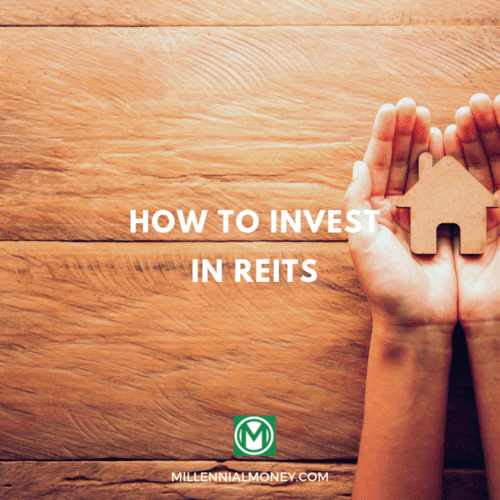When people start their investing journey, they often opt for traditional investments, like investing in the stock market. But alternative investments could also be worth considering, especially as a way to diversify your portfolio.
From property to wine, fine art, and many different things in between, investing in alternatives can be a smart move when done right.
But what are alternative investments, exactly? Let’s find out.
What Are Alternative Investments?
Alternative investments (also known as alternative assets) are any type of investment that cannot be put in a 401(K). For example, things like cash and stocks are not considered alternative investments – but are traditional assets.
There are many different types of alternative investments, such as private equity funds, hedge funds, real assets, and venture capital (investing in start-ups). In this article, we have listed 15 of the best alternative investment ideas.
Having alternative investments in addition to traditional assets in your portfolio could protect you from certain market volatility, which can provide you with extra security within your investment. And, as diversification is the number one rule of investing, being smart in your asset allocation can help you meet your investment objectives.
15 Best Alternative Investments
Here are the top alternative investments you can add to your portfolio:
- Real Estate Investments
- Fine Art
- P2P Lending
- Cryptocurrencies
- Farmland
- Collectibles
- Commodities
- Tax-Liens
- Jewelry
- Angel Investing
- Wine
- Precious Metals
- Mineral Rights
- Hedge Funds
- Start Your Own Business
1. Real Estate Investments
If you want to get involved in the property market but lack the funds or the time to purchase real estate, then real estate investments might be just the thing for you.
With a real estate investment, you can own a small or a big part of a property with some platforms offering investments that start from as little as $10.
This type of investment is also known as real estate crowdfunding. Some real estate investments are only open to accredited investors, but this is not always the case.
Real Estate Investing Details:
- A cost-effective way to get involved in real estate investment
- Investments start from as little as $10
- Online platforms and apps make it easy to invest
- Available for different types of investors
I’ve been investing with Fundrise since 2017. Disclosure: when you sign up with my link, I earn a commission. All opinions are my own.
2. Fine Art
Fine art investing can be something of a closed club, at least traditionally. You could either invest a lot of money on well-known pieces or take a chance on an up-and-coming artist hoping they make it to the big leagues.
If you don’t have the money or connections, nowadays, you can also buy ‘shares’ through online platforms. With fine art generally being a well-performing asset class, this type of alternative investment (also known as a real asset) is well worth our consideration.
If you’ve decided to invest in fine art and don’t know where to start, Masterworks is a great platform to check out. It allows you to buy shares in a painting (just like buying shares in public companies).
Fine Art Investing Details:
- Traditionally difficult to get into requiring large sums of money
- Performs generally well
- Investment platforms allow you to buy shares
- Can be quite fun especially if you appreciate fine art
3. P2P Lending
Peer to Peer lending, also known as P2P lending, allows investors to lend money to other people. There are many platforms you can use for P2P lending (check out my review of Lending Club), so doing your homework is a must.
The websites set the terms, and people looking to borrow are pre-qualified. Some sites focus on returns, others on safety. This makes it important to understand your risk appetite before investing in P2P lending.
P2P Lending Details:
- Loan people money through P2P lending platforms
- Research the platform you are lending money on
- Different platforms have different requirements such as credit score
- Can be an excellent diversification method
Learn More:
4. Cryptocurrencies
If you’re looking to invest beyond more traditional financial assets (such as stocks and bonds), cryptocurrency can be a great option. Cryptocurrency is a virtual, decentralized form of currency. This is both its strength and weakness.
Cryptocurrencies such as Bitcoin, Bitcoin Cash, Ethereum, and several others have been taking the financial world by storm. Their value has been increasing wildly, but there is a lot of volatility. This means investments should be made with caution.
Many investment portals are also starting to offer crypto, making it easier than ever to buy and sell.
Cryptocurrency Investing Details:
- Massive potential for returns
- Different cryptocurrencies available
- Easy to buy and sell thanks to investment portals and apps
5. Farmland
While technically real estate, farmland deserves its own special mention. Farmland is essentially land that can be used to produce certain goods – like food, for example.
An investment made in this alternative investment in 1990 would have seen a return close to 2,000% today. Up until recently, investing in farmland was not easy.
This is all changing thanks to apps dedicated to this type of investment, making it much more accessible to the general public.
Farmland Investing Details:
- Historically stable returns
- Online platforms available
- Make money from rent payments or land value
- Can protect you from market volatility
6. Collectibles
Collectables are any items whose value increases over time. Stamps, baseball cards, comics, and action figures are some of the items that tend to fall into this category.
First-editions, one-offs, and rare items tend to bring in more cash with one particular baseball card being valued at over $3 million. If you have an interest in the collectible, this can be a fun alternative investment in which you get to spend more time on the things you like.
Collectibles Investing Details:
- First editions and one-offs tend to have a higher value
- Must be in a pristine condition
- Most valuable baseball card worth over $3 million
- A fun way to invest
7. Commodities
A commodity is an umbrella for economic goods or services. Commodities are tangible assets that may include precious metals such as gold and silver, as well as crude oil, sugar, and coffee, among other goods.
You should be able to buy commodities through ETFs on your investment platform of choice. Investing in commodities can be a great way to diversify your portfolio, adding a degree of resilience to your overall investment strategy.
Commodities Investing Details:
- Commodities are economic goods or services
- Gold, silver, crude oil, and wheat are examples of commodities
- Can be bought through ETFs or physically
- Can help you diversify your investment portfolio
8. Tax Liens
This is an interesting one. Tax Liens are claims against the owner of a property who has failed to pay his or her taxes – and you can buy them in an auction (you’ll pay the amount of taxes owed for the right to collect back the money owed, plus any interest payment).
You can buy tax liens at auctions, which may be held in a physical setting, or online.
Tax-lien Investing Details:
- Tax liens are claims against unpaid property tax
- Individuals can buy tax liens and then collect the taxes and interest from the property owner
- Can be very lucrative (but is high-risk)
9. Jewelry
Just like art, pieces of jewelry may accumulate in value over time. To invest in jewelry, you should have an understanding of the market as well as the specific properties of jewelry that can contribute towards greater value.
Make sure you take the time to get the piece authenticated and, as with any other investment, try to keep your emotions out of the equation when deciding which pieces to buy and which pieces to sell and when.
Jewelry Investing Details:
- Certain jewelry accumulates value over time
- Understand which pieces are most likely to increase in value
- Make sure you have pieces independently authenticated
- Do not get emotionally attached to your investments
10. Angel Investing
Angel investors invest in businesses that are still in their early stages. For your investment, you’ll get equity, which is a percentage of the business.
You’ll make your money once you sell your stake, which can take a few years. As an investment, it can be risky, but the potential return can make it worth it.
Make sure you understand the business and the market to increase your chances of success.
Angel Investing Details:
- Invest in up-and-coming businesses
- Many opportunities to invest in growing markets such as FinTech
- Investment is against company equity
- Research the market and the company before investing
11. Wine
Good wine increases in value over time. Cheap wine does not. Having an understanding of different wines and which years were good vintages is a must.
As wine is consumed, unlike jewelry, for example, certain bottles become rarer over time, thereby increasing the value of your investment. Proper storage is also very important – wine must be kept in perfect conditions to avoid it turning into vinegar.
You can also find apps through which you can buy wine and let them store it for you, helping you minimize the risk.
Wine Investing Details:
- Wine from a good vintage can increase in value over time
- It is consumable, so it tends to become rarer over time
- Appropriate wine storage is important to protect your investment
- Online platforms can take care of purchase and storage for you
12. Precious Metals
Precious metals are used for a variety of things – from jewelry to electronics. This means they are in high demand, which can make them a valuable alternative resource. In financial terms, precious metals belong to a group of real assets (along with fine art and real estate).
You can outright purchase precious metals such as gold bullion and store it yourself – or invest in them through mutual funds and ETFs. They are one of the more common types of alternative investments and act as insurance policies of sorts.
Precious Metals Investing Details:
- Precious metals are used for a variety of goods
- In high demand making them a safer investment
- Can be purchased outright such as in gold bullion
- A great option for portfolio diversification
13. Mineral Rights
If there are minerals underneath your property, you can sell the rights to extract those minerals to a company. Minerals, in this case, is a general term that refers to any precious resource that can be extracted from the ground, including oil, coal, and diamonds, among others.
Make sure you take the time to do your research. As you can imagine, resource extraction is a very competitive market.
Mineral Rights Investing Details:
- Mineral is a generic term that refers to extractable resources
- Minerals rights are the rights to extract those resources
- It’s a highly competitive market so do your research
- You can buy rights for a lump sum and then collect payments
14. Hedge Funds
Hedge funds are essentially investment funds (or investment pools) that allow you to invest in different strategies and asset types. They’re formed by a limited number of investors and operated by hedge fund managers. The manager raises capital and invests it in alternative investments.
There are many hedge fund strategies (such as equity long-short, macro-trends, and others). Generally, hedge funds are different from venture capital and private equity because they invest in public equities.
The downside of hedge funds is that, typically, they’re only accessible to accredited investors (typically high net-worth individuals), so they are quite exclusive.
Hedge Fund Investing Details:
- Hedge funds are flexible (not as regulated as mutual funds)
- A good way to diversify your portfolio
- Typically aimed at professional, accredited investors
15. Start Your Own Business
Starting your own business can be one of the most rewarding alternative investments. The important thing here is to do your homework and draft a business plan to see how much money you’re going to need to get it off the ground.
A good business plan will also tell you how much you can expect to make over a three to five-year period. This can help you decide whether it’s worth pursuing or not.
Investing In Your Own Business:
- One of the most rewarding forms of alternative investing
- Draft a business plan to see how much capital you need
- Work on your income projections
- Has the potential to give you more flexibility
Frequently Asked Questions
What are the four most common alternative investments?
There are many different types of investment alternatives. The four most common investment alternatives are:
- Real estate
- Precious metals
- Cryptocurrency
- P2P lending
These are considered relatively stable with a low barrier to entry, which makes them attractive to different types of investors.
Are alternative investments a good idea?
Whether alternative investments are a good investment or not, depends on a number of things.
Make sure you understand the market of your investment and that it fits within the overall investment and risk management strategy of your portfolio. You should also make sure you use reputable intermediaries where applicable. This will help you make sure you are investing in the real thing.
Is ETF an alternative investment?
Generally speaking, since ETFs can be added to your 401(k), they are not considered to be alternative investments. If the ETF has commodities in it, then it can be considered an alternative investment, even if this can be listed in your 401(k).
Are alternative investments high-risk?
Not all alternative investments are high-risk – but no investment is completely risk-free.
Property is an alternative investment that is not considered high risk, for example. The important thing to understand is your risk appetite – and your risk tolerance. This can help you decide which alternative investment is best for you.
Finding The Right Alternative Investments For You
With so many different alternative investments available, deciding the one to go for can be a bit of a challenge.
The important thing here is to pick an investment you understand – both as a product or service, as well as the risk associated with it. This can help you balance your investment portfolio, improve your risk strategy, and help you make your investment a financial success.
Understanding your risk tolerance is key – as well as choosing investments that are right for how much risk you’re willing to tolerate.
If you’re interested in learning more about alternative investments and eventually investing in them, speak with your financial advisor to learn about all of the options available.





No comments yet. Add your own